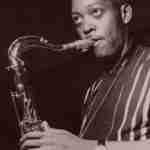In practicing improvisation, one common pitfall that we run into is expecting to find the secrets of jazz all by ourselves. We gather our books and recordings and head into the practice room determined to overcome the difficulties of improvisation with an army of one. What’s the big deal, you taught yourself Spanish, so how hard could jazz be?
Eventually, we encounter the inevitable – we get frustrated with our progress, hit a wall with our ear training skill or harmonic knowledge, and lose motivation. Not to worry. You are not alone.
While it is necessary to spend hours in the practice room by yourself studying records and working on instrumental technique, we can’t figure everything out for ourselves – we need some sort of guidance. If you look at the history of jazz, the best improvisers had mentors and studied intently under the guidance of their heroes. This is easier than it sounds. There are resources all around us – we just have to seek them out.
Looking for guidance
We have opportunities to talk to and take lessons with great musicians everywhere. Learn to take advantage of these situations. Find the players that you admire and aspire to sound like. These players may be local heroes that you see every week or huge names in jazz that you only have access to through interviews. Find out what makes them tick. What specifically did they practice? How long did it take them to get where they are today? Who where their heroes? What is their outlook on the music?
Accomplished musicians know what it takes to succeed because they have done it themselves. Ask questions and don’t take their answers lightly – these words may hold the keys to your musical problem.
Sometimes these words can tell us exactly what to practice or how to make progress musically. At other times, these words only reveal their meaning after time has passed and experience changes our perspective. Either way, it’s crucial that we are listening and open to accepting the information.
Whether it’s talking about practice, technique, musicianship, or even a philosophical approach to life, we can greatly benefit from any words of wisdom these mentors have to offer.
Accessing the past
The simple fact of being a jazz musician in this day and age is that we can’t hear the old masters of this music in a live setting. We can’t go to a club and hear a set or even talk to them after a show and pick their brain. Sure, we have recordings and biographies, but what were they really thinking about as they played this music?
Today one of the best ways that we can get inside the heads of the masters of the past, besides through their recordings, is through interviews. Because of the internet, we have easy access to many of these interviews, masterclasses, and lessons. If you haven’t already, check out this post with 50 jazz education clips for a sample of some of the great resources out there.
The great thing about hearing or watching these players speak for themselves, is that we can actually know what they were thinking, straight from the source. Instead of listening to myths that surround these giants and misconceptions that they were natural talents and never had to work hard in the practice room, we can hear the truth.
Interviews
Here’s an interview with Charlie Parker done by Paul Desmond. To find more interviews, including this one, check out this post: 50 Jazz Interviews to Get You Inspired.
After listening to Bird speak, a very different picture emerges of this master than the legend that surrounds him. The real man viewed himself as an eternal student of the music and worked very hard to develop his unique sound.
Below is an interview with Joe Henderson and John Scofield. Among many important issues, the tenor legend discusses his feelings about the trend in jazz with younger musicians and his thoughts on what it truly takes to be a jazz musician.
Even some of the big name musicians of today aren’t easily accessible. They may not be performing in your city or even if they do, you may not be able to speak with them in-depth. Once again the internet is a great resource.
Philosophical approaches
Not everything in learning how to improvise concerns technique, chords and theory, or how many solos you should transcribe.
Jazz is a mentality. A way of approaching life. Contrary to the one sided musician that is portrayed on the covers of albums, many of the masters of this music are deep human beings.
Check out this Tom Harrell interview:
Miles was a musician that defied boundaries and labels. He was a musician that personified something so much more than the famous jazz trumpet player he is remembered as. This is a clip from a documentary of Miles Davis:
There are so many resources around you. Seek them out and develop relationships with the people that you admire. From my own experience, the mentorships that I’ve cultivated have proven to be priceless. The same advice given to me years ago takes on new meaning as I continue to grow. Don’t hesitate to approach your heroes. They may seem intimidating, but at the end of the day they are just people too.










